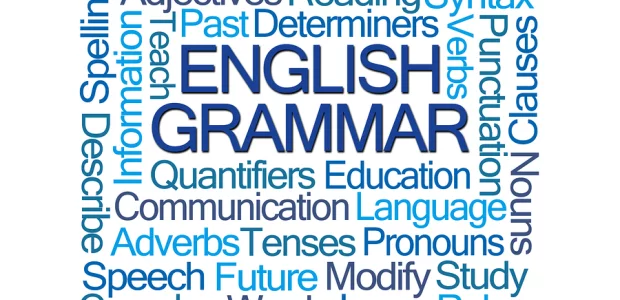
Spelling and capitalisation can be tricky enough, but when you have to master the entire structure of a language, plan on plenty of study time.
Purpose of TOEFL and IELTS
The Test of English as a Foreign Language (TOEFL) and International English Language Testing System (IELTS) examinations were created to set a minimum baseline of English language knowledge before someone can study or work in an environment where English will be either primarily or exclusively used.
Both tests measure your knowledge of the English language through a series of reading, writing, and speaking questions. Since the rules of English grammar are so vital to its mastery, you will need to demonstrate your proficiency by scoring well on the TOEFL or IELTS.
Most post-graduate programmes around the world are taught in English. Universities and other educational institutions frequently require non-native English speakers to achieve a minimum score on either test to prove their readiness for a degree programme. You need to check with the schools you are considering to find out their minimum requirement, as well as which test is accepted by their programme. Most schools accept either, but you need to confirm that before setting up a test date.
TOEFL overview
The TOEFL has converted to an exclusively online version of its test, called the TOEFL-iBT, or the TOEFL internet-based test. Paper-based tests are no longer administered, but previous scores are still valid for two years from the test date.
Non-native English speakers will find that the TOEFL score is widely accepted, with over 10,000 schools and agencies in over 130 countries using it as an evaluation method. Scoring is different for the internet-based test than the paper-based test, so if you have an old paper-based score, it will still be accepted within the two-year range, but the actual score will be in the hundreds. Internet-based scores range from 0 to 120, with each category weighted the same.
The minimum score accepted by universities and other institutions varies widely. Your first step will be to check with the schools you are considering. Some of the elite schools require a score of 100 or above, while others may only require scores in the 60-80 range.
Just because the TOEFL is internet-based, this does not mean that you can log in and take the test anywhere you have an internet connection. You still have to go through the registration process and take the test at one of the approved testing centres on an assigned date.
TOEFL format
You will want to set aside at least four hours for the test (not including additional time for check-in), which is structured as follows:
- Reading – 60-80 min
- Listening – 60-90 min
- Speaking – 20 min
- Writing – 50 min
Sample TOEFL question using English grammar
The following is an example of a TOEFL question from the Writing section:
Do you agree or disagree with the following statement:
A teacher’s ability to relate well with students is more important than excellent knowledge of the subject being taught.
Use specific reasons and examples to support your answer.
As you can see, a mastery of English grammar is essential to your ability to communicate a thorough, coherent answer to this question.
Check out: Building English Vocabulary for Graduate School
IELTS overview
The IELTS has two versions of its test: one for the purpose of acceptance into institutions of higher learning and one for the purpose of working in an English-speaking country. For this article, we will focus on the first, which is called the Academic version.
The IELTS measures one thing: English language proficiency. It is not a pass-or-fail test. You will be given a score from 0 to 9. The score of 0 represents someone who never attempted the test, so you will get at least a score of 1 if you attempt the test at all. A score of 1 is classified as a “non-user” and a score of 10 represents an “expert user.”
Post-graduate institutions in the US, Canada, Great Britain, and Australia, among others, will likely stipulate a minimum score on the IELTS before acceptance into their programme. The average is around 6, with the highest minimum of 7 belonging to Harvard, Duke, and other top programmes.
IELTS format
With the IELTS examination widely available at around 1,100 locations worldwide, it is unlikely that you will have to travel far to take it. Set aside at least 3-4 hours for the test, which is structured as follows:
- Listening – 30 min
- Reading – 60 min
- Academic Writing – 60 min
- Speaking – 11-14 min
Sample IELTS question using English grammar
Here is an example of an IELTS question from the Academic Writing section of the IELTS:
You should spend about 40 minutes on this task.
Write about the following topic:
The first car appeared on British roads in 1888. By the year 2000 there may be as many as 29 million vehicles on British roads.
Alternative forms of transport should be encouraged and international laws introduced to control car ownership and use.
To what extent do you agree or disagree?
Give reasons for your answer and include any relevant examples from your knowledge and experience.
Write at least 250 words.
As you can see, there is no way to score high on this sample question without using excellent English grammar. A multiple choice answer is not an option here. You will have to execute English grammar to near perfection to master a question like that one.
Studying English grammar
In person or online, preparatory classes to help you master English grammar are abundant. Many resources are free online tools, but if you need tailored, one-on-one assistance, you can find many experts ready to tutor you on English grammar in general. Some even have specific insight into how English grammar will be tested on the TOEFL and IELTS examinations.
Check out: What Do IELTS and TOEFL Writing Tasks Assess?
Obviously, non-native speakers have some work to do when preparing for the TOEFL or IELTS tests. Not only do you need to read, write, listen to, and speak the English language with great precision, but other skills are required as well. Critical thinking and reasoning skills are needed to formulate quality answers and opinions. And articulating those answers and opinions can be even trickier without mastering the nuances of English grammar.


Comments